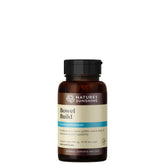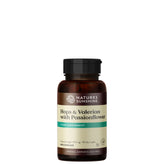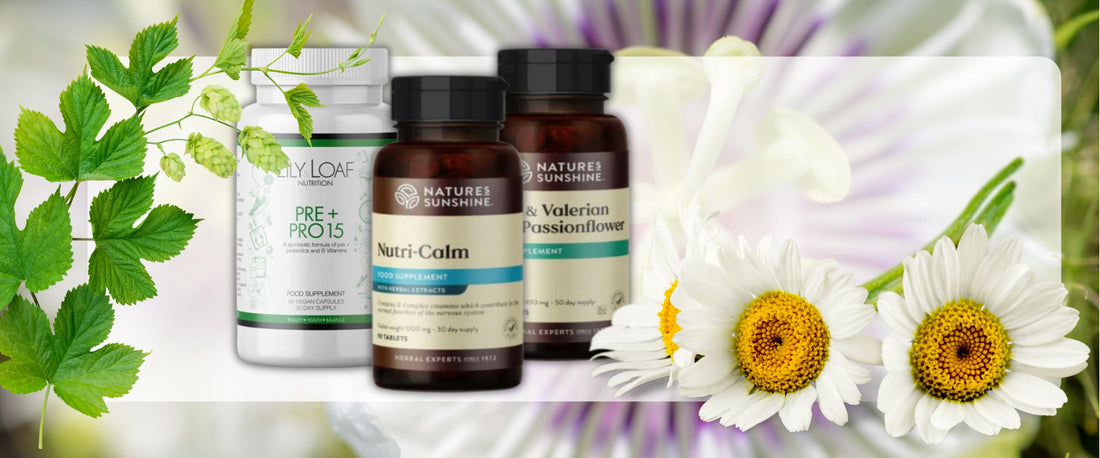We often hear about the importance of diet and exercise for maintaining good health, but one crucial aspect that sometimes gets overlooked is sleep. We spend nearly a third of our lives sleeping, and for good reason—sleep is the cornerstone of both mental and physical health. It is vital for the proper functioning of nearly every organ in your body, allowing it to recover and your mind to consolidate and store information effectively. However, with our busy schedules and endless to-do lists, it's easy to skimp on sleep, thinking we can catch up later. Striking the right balance can be challenging; too little sleep deprives your body of the essential downtime it needs to rejuvenate, while too much can leave you feeling lethargic and unproductive. Understanding how our bodies are wired to sleep can help us prioritise rest, leading to a healthier, happier life.
The Magic of Circadian Rhythms
Our bodies operate on an internal clock known as the circadian rhythm, which regulates the sleep-wake cycle over a 24-hour period. This rhythm is influenced by environmental cues like light and temperature, dictating when we feel alert and when we feel sleepy. The circadian rhythm peaks during the day, keeping us awake and focused, and dips at night, signaling that it's time to wind down.
Different times of the day and even different seasons can affect our sleep patterns. For instance, during winter months, shorter daylight hours might make you feel sleepy earlier, while long summer days can keep you energised late into the evening. Being in tune with these natural changes can help you adjust your daily routine to ensure you’re getting the rest you need.
The traditional Chinese medicine (TCM) body clock, also known as the Chinese organ clock or meridian clock, illustrates how each organ in the body is linked to specific times of the day for optimal function and repair. According to this system, every two-hour period is associated with an organ and its corresponding meridian. For example, between 1 a.m. and 3 a.m., the liver is most active in detoxification and blood purification, while the lungs regenerate from 3 a.m. to 5 a.m. Staying up late disrupts this natural rhythm, causing us to miss crucial repair times for various organs. Over time, this may lead to imbalances, fatigue, and potential health issues. Thus, aligning our sleep patterns with this clock helps promote optimal organ function and overall well-being.
The Role of Sleep in Physical Health
Sleep plays an integral role in maintaining your physical health. During sleep, your body gets the opportunity to recharge, repair damaged cells, and release critical hormones and chemicals that support overall bodily functions. An occasional poor night’s sleep might leave you feeling groggy and irritable, but it’s usually not a cause for concern. However, consistently lacking sleep can lead to long-term health problems, including high blood pressure, heart disease, cognitive impairments, digestive issues, and a weakened immune system.
On the other hand, getting adequate sleep helps you reset your immune system, improves your mental focus and agility, and enables you to regulate your mood and emotions better, making you more productive throughout the day.
Sleep Needs Through the Ages - How Much Sleep Do You Really Need?
Our sleep requirements change as we age and as we grow older, our sleep patterns can become more fragmented, and it might take longer to fall asleep. Yet, no matter our age, quality sleep is essential. It’s not just about quantity, but also about reaching the deeper stages of sleep where the body and mind truly rest and rejuvenate.
The amount of sleep you require varies depending on your age, lifestyle, and activity level. However, general guidelines suggest the following sleep durations:
- Newborns: 14-17 hours
- Infants: 12-15 hours
- Toddlers: 11-14 hours
- Preschoolers: 10-13 hours
- School-age children: 9-11 hours
- Teenagers: 8-10 hours
- Young adults: 7-9 hours
- Adults: 7-9 hours
- Seniors: 7-8 hours
While most adults should aim for 7-9 hours of sleep per night, individual patterns can differ. Women may require more sleep than men but often experience lighter, more easily disturbed sleep. Factors like depression, pregnancy, hormonal changes, and medical conditions such as sleep disorders or chronic pain can all impact sleep quality.
Men may experience poor sleep due to stress, depression, or health issues like cardiovascular disease. Additionally, men are often more likely to underestimate the importance of sleep, staying up later than they should. Snoring, which is more common in men, can also disrupt sleep. While lifestyle changes, like sleeping on your side, can help reduce snoring, other solutions vary in effectiveness depending on the individual.
Signs You’re Not Getting Enough Deep Sleep
Deep sleep, also known as slow-wave sleep, is when your body repairs muscles and tissues, boosts immune function, and helps balance hormones. If you’re waking up feeling groggy or struggling with memory and concentration, it might be a sign that you’re not getting enough deep sleep. Other signs include irritability, increased cravings for sugary foods, and frequent illness.
Understanding Brain Wave States
Our brains go through different wave states during sleep. When you’re awake, your brain exhibits beta waves, which are associated with active thinking and problem-solving. As you start to relax and prepare for sleep, your brain shifts to alpha waves, which are slower and more restful. Deeper stages of sleep bring on theta and delta waves, where the brain is in its most restorative state.
Achieving deep sleep is crucial, but it can be elusive for many of us. Meditation is one effective way to transition the brain from a busy, beta wave state into the calmer alpha waves. Mindfulness practices before bed can help ease anxiety and prepare your mind for sleep.
Limit Artificial Light and Embrace Natural Light
Artificial light, especially blue light from screens and modern lighting, disrupts our natural circadian rhythms by interfering with the body’s production of melatonin, the hormone that regulates sleep-wake cycles. Constant exposure to artificial light confuses the brain, making it harder to know when it's time to rest, leading to difficulty falling asleep and poorer sleep quality. Limiting exposure to artificial light, not just before bed but throughout the day, helps maintain a healthier circadian rhythm.
Red light or natural spectrum lamps are gentler on the eyes and better for promoting sleep, as they have a calming effect and don't interfere with melatonin production. Incorporating these lights into your evening environment can enhance relaxation and support better sleep patterns.
Spending time in nature helps regulate your sleep cycle. Natural light exposure during the day reinforces your circadian rhythm, helping you feel more alert during daylight hours and sleepy when night falls. A walk in the park or simply sitting in your garden can do wonders for your sleep quality. Getting plenty of natural light during the day, especially in the morning, strengthens this rhythm, improving sleep and overall well-being.
Lifestyle Habits That Promote Better Sleep
Getting enough quality sleep is essential for maintaining both physical and mental health. By making small changes to your routine, diet, and environment, you can significantly improve your sleep and overall well-being. Remember, sleep is not just about quantity—quality matters too.
Improving sleep quality however, often involves finding what works best for you. However, here are some general strategies to consider:
-
Diet Matters: What you eat and when you eat significantly impacts your sleep. A diet rich in fruits and vegetables supports overall health, while heavy, hard-to-digest meals close to bedtime can disrupt your sleep. Additionally, limit your intake of stimulants like caffeine, sugar, and nicotine, especially in the evening. Foods rich in magnesium, like leafy greens, nuts, and seeds, can help relax muscles and promote sleep.
-
Manage Alcohol Intake: While alcohol might initially make you feel sleepy, it can disturb your sleep later in the night, either by dehydrating you or waking you up to use the bathroom. Additionally, alcohol consumption tends to wake us up during out slumber as the result of liver detoxification.
-
Establish a Sleep Routine: Going to bed and waking up at the same time every day helps regulate your body’s internal clock, making it easier to fall asleep and wake up naturally. Listen to your body and allow any daytime naps that feel necessary for you.
-
Create a Sleep-Friendly Environment: Your bedroom should be a sanctuary for sleep. Keep it cool, dark, and quiet, and invest in a comfortable mattress and pillows. Establishing a pre-sleep routine, such as taking a warm bath or practicing aromatherapy, can help you relax and prepare for sleep. And remember to make sure to turn off any electronics near your area of relaxation!
-
Limit Screen Time: Electronic devices emit blue light, which can interfere with the production of melatonin, the hormone responsible for promoting sleep. Avoiding screens before bedtime and engaging in relaxing activities, like reading or listening to soothing music, can help your brain wind down.
-
Natural Sleep Inducers: Aromatherapy, using essential oils like lavender, chamomile, and sandalwood, create a calming atmosphere that promotes sleep. Herbal teas, such as valerian root or passionflower, are also natural remedies known to aid sleep.
-
Relaxing Baths: A warm bath relaxes muscles, reduces stress, and helps lower body temperature, signaling it's time for sleep. Adding calming essential oils like lavender enhances relaxation.
-
Meditation: Meditation before bed calms the mind, reduces anxiety, and helps you fall asleep faster. Mindfulness or deep breathing techniques promote relaxation and deeper rest.
-
Reading: Reading a calming book can ease the transition to sleep. But remember to avoid screens and stimulating content to prevent blue light exposure and overstimulation.
- Find What Works for You: Experiment with different habits, like herbal tea, yoga, or a set bedtime, to find the best sleep routine tailored to your needs.
The Consequences of Sleep Deprivation
Lack of sleep can have serious consequences on both mental and physical health. Chronic sleep deprivation is linked to an increased risk of heart disease, obesity, and diabetes. Mentally, it can lead to mood swings, anxiety, depression, and cognitive decline. When we don’t get enough deep sleep, our brains struggle to consolidate memories and process information, making it harder to learn new things and retain what we’ve learned.
How to Know If You're Getting Enough Sleep
If you wake up feeling refreshed and maintain good energy levels throughout the day, you’re likely getting enough sleep. However, if you find yourself reaching for the snooze button, craving naps, or struggling to focus, it might be time to reassess your sleep habits.
Embrace the Power of Sleep
Prioritising sleep is one of the best things you can do for your overall well-being. By aligning with your natural circadian rhythms, creating a sleep-friendly environment, and adopting healthy lifestyle habits, you can improve the quality of your sleep and, by extension, your life. Remember, sleep is not a luxury—it’s a necessity. So, tonight, try to turn in a little earlier, meditate for a few minutes, and let nature and your body guide you to the rest you deserve. Sweet dreams!
The Gut's Circadian Rhythm and the Benefits of Probiotics for Sleep
The gut has its own circadian rhythm, intricately connected to the body’s overall internal clock, which is managed by the brain. This rhythm is vital for regulating various gut functions, including digestion, nutrient absorption, and the production of digestive hormones and enzymes. Just like the rest of the body, the gastrointestinal system follows a 24-hour cycle that optimises its performance based on the time of day.
One fascinating aspect of the gut’s circadian rhythm is the fluctuation of the gut microbiome. The composition and activity of gut bacteria change throughout the day, influenced by the body's internal clock. These changes affect digestion, metabolism, and immune function. Additionally, the production of digestive enzymes and gastric acid peaks during the day when food intake is anticipated and decreases at night during fasting periods. Gut motility, or the movement of food through the digestive tract, also follows this rhythm, being more active during the day and slowing down at night.
Disruptions to the circadian rhythm, such as irregular sleep patterns, shift work, or late-night eating, can negatively impact gut health. These disruptions can lead to digestive issues, altered gut microbiota, and increased risk of metabolic disorders.
Probiotics are particularly beneficial in supporting both gut health and sleep. These beneficial bacteria help maintain a balanced gut microbiome, which in turn supports the gut’s natural rhythms and overall digestive function. Research has shown that probiotics help improve sleep quality by influencing the production of neurotransmitters and hormones related to relaxation and sleep regulation. For example, probiotics help regulate the levels of cortisol, a stress hormone that interferes with sleep, and enhance the production of serotonin, a precursor to melatonin, the sleep hormone.
Incorporating probiotics into your routine, along with maintaining a regular sleep-wake cycle and eating at consistent times, enhances gut health and promotes better sleep. Aligning your lifestyle with your body’s natural rhythms supports both optimal digestive function and restful nights, contributing to overall well-being.
Nature’s Supplements for a Natural Sleep Aid
Incorporating natural supplements into a balanced diet is a highly effective way to address sleep problems and help regulate your body's natural rhythms. These supplements often contain ingredients that work synergistically with your body's natural processes to promote relaxation, reduce stress, and support the production of melatonin, the hormone responsible for regulating sleep. When combined with a nutritious diet, these supplements help create the optimal conditions for a restful night’s sleep, ensuring that you wake up feeling refreshed and rejuvenated.
Nature’s Sunshine and Lily & Loaf supplements are expertly crafted with the best natural ingredients specifically designed to support you on your wellness journey. Harnessing the power of herbs, vitamins, and minerals, these products are formulated with precision and a deep understanding of how natural ingredients work within the body, to ensure that you’re getting the most effective doses of natural ingredients that work in harmony with you.
By integrating the below expertly crafted natural supplements into your lifestyle, alongside a balanced diet, you will significantly enhance your ability to achieve deep, restorative sleep, leading to improved overall health and well-being.
Nature’s Sunshine Hops, Valerian & Passionflower
Nature’s Sunshine Hops, Valerian, and Passion Flower is a blend of natural ingredients designed to enhance sleep, elevate mood, and regulate circadian rhythms while nourishing the nervous system.
Hops. Hops have calming properties due to compounds like alpha and beta acids, which help relax the nervous system and reduce anxiety. This promotes restful sleep and supports natural circadian rhythms. Hops also contribute selenium, zinc, niacin, and vitamin C—nutrients essential for maintaining nervous system health. Vitamin C is an antioxidant that aids in reducing tiredness and fatigue, selenium protects cells from oxidative stress, zinc supports cognitive function, and niacin contributes to normal nervous system function.
Valerian Root. Valerian root is renowned for its sleep-promoting effects. It interacts with neurotransmitters like GABA to help calm the nervous system and ease anxiety, which significantly improves sleep quality. Historically used in traditional medicine, valerian root has been shown to reduce the time it takes to fall asleep, making it a valuable herb for managing stress and promoting relaxation.
Passion Flower. Passion Flower is known for its anxiety-reducing and sedative effects. It contains flavonoids and alkaloids that help to calm the nervous system and enhance mood. Passion Flower was traditionally used as a calming agent in times of stress and continues to be valued for its ability to promote relaxation and improve overall emotional well-being.
Combined Benefits. Together, Hops, Valerian, and Passion Flower provide a comprehensive approach to supporting sleep and mood. This herbal combination nourishes the nervous system with essential nutrients, promotes relaxation, and helps regulate circadian rhythms. By reducing stress and improving sleep quality, this blend helps ensure a balanced and restorative sleep cycle, contributing to better overall health and well-being.
Incorporating Nature’s Sunshine Hops, Valerian, and Passion Flower into your routine supports relaxation, improves sleep quality, and enhances mood, while also nourishing the nervous system with vital nutrients. This blend offers a natural, holistic solution for managing stress and promoting a healthier sleep pattern.
Lily & Loaf Pre + Pro 15
Probiotics are crucial for maintaining a healthy balance of gut flora, which is essential for proper digestion and nutrient absorption. A balanced gut microbiome supports the body’s circadian rhythms—internal processes that regulate sleep-wake cycles. By fostering a well-functioning gut, probiotics help synchronise these rhythms, promoting more consistent and restful sleep.
Moreover, certain strains of probiotics, such as those found in Lily & Loaf Pre + Pro 15, are instrumental in synthesising B vitamins. These vitamins, particularly B6, B9, and B12, play a critical role in mood regulation and neurotransmitter production. By supporting the synthesis of these essential nutrients, probiotics help stabilise mood and reduce stress, which in turn enhances sleep quality.
Probiotics also influence melatonin production, a hormone that regulates sleep cycles. A healthy gut microbiome supports the natural production of melatonin, which helps maintain a regular sleep pattern. By promoting a balanced gut environment, probiotics ensure that the body effectively produces and regulates melatonin, leading to improved sleep.
Lily & Loaf Pre + Pro 15 exemplifies a high-potency, multi-strain probiotic supplement designed to support gut health and overall wellness. Each serving provides nearly 12 billion live bacteria, including eleven diverse strains such as Lactobacillus and Bifidobacterium species. These strains offer several benefits: they maintain gut balance, support the production of B vitamins, and aid in breaking down larger milk proteins for better absorption.
Lily & Loaf Pre + Pro 15 also contains prebiotics like fructo-oligosaccharides. and inulin, which nourish and spread beneficial bacteria throughout the gut. It is particularly useful after antibiotic use, during travel, or after digestive upsets, and is suitable for vegetarians and vegans. To ensure its efficacy, Pre + Pro 15 should be stored in a cool, dry place or refrigerated.
In summary, probiotics like Nature’s Sunshine Pre + Pro 15 are essential for regulating sleep by supporting gut health, synthesising B vitamins, and promoting melatonin production. Incorporating these probiotics into your daily routine enhances gut balance, supports your body’s circadian rhythms, and contributes to improved sleep quality.
Nature's Sunshine Nutri-Calm
Nature's Sunshine Nutri-Calm is a powerful supplement designed to support relaxation, improve sleep quality, and stabilise mood. This expertly crafted formula combines essential nutrients with natural herbs to help regulate sleep patterns and manage stress effectively. By incorporating Nutri-Calm into your routine, you will benefit from a blend that promotes restful sleep, enhances mood, and supports a healthy nervous system.
Chamomile Flower Extract: Chamomile is renowned for its calming properties, making it a valuable herb for promoting relaxation and improving sleep quality. Its gentle sedative effects help soothe the nervous system, making it easier to unwind and fall asleep. Chamomile also supports a balanced mood, which is crucial for maintaining overall well-being and managing stress.
Vitamin C: Vitamin C plays a vital role in reducing tiredness and fatigue, which improves overall energy levels and mood. It contributes to the normal functioning of the nervous system and helps protect against oxidative stress. During times of high stress or intense physical activity, Vitamin C supports the immune system and aids in the recovery process, enhancing overall resilience and mood stability.
B Vitamins: B vitamins, including B1 (Thiamine), B3 (Niacin), and Biotin, are crucial for maintaining a healthy nervous system and managing stress. They help reduce fatigue, support energy production, and aid in mental clarity. B vitamins are particularly important during stressful periods as they are easily depleted from the body. They assist in regulating mood, improving cognitive function, and maintaining overall vitality.
Nutri-Calm Formula: Nature's Sunshine Nutri-Calm combines these nutrients with chamomile in a yeast-free, dairy-free supplement suitable for vegans and vegetarians. This formula is designed to help the body manage stress and replenish essential vitamins often depleted during challenging times. The blend supports the nervous system, helps reduce tiredness, and maintains a calm and balanced mood.
Key Benefits:
- Supports Nervous System Health: Vitamin C and B vitamins are essential for maintaining a healthy nervous system and combating the effects of stress.
- Reduces Tiredness and Fatigue: These nutrients help alleviate fatigue and boost energy levels, promoting overall vitality.
- Enhances Relaxation and Sleep Quality: Chamomile extract aids in calming the mind and body, improving the ability to fall asleep and stay rested.
- Boosts Mood and Resilience: The combination of these nutrients helps stabilise mood and improve emotional well-being during times of stress.
Incorporating chamomile extract, Vitamin C, and B vitamins into your routine with Nature's Sunshine Nutri-Calm helps regulate sleep, manage stress, and enhance overall well-being. This blend offers a holistic approach to supporting relaxation and maintaining balance in your daily life.










